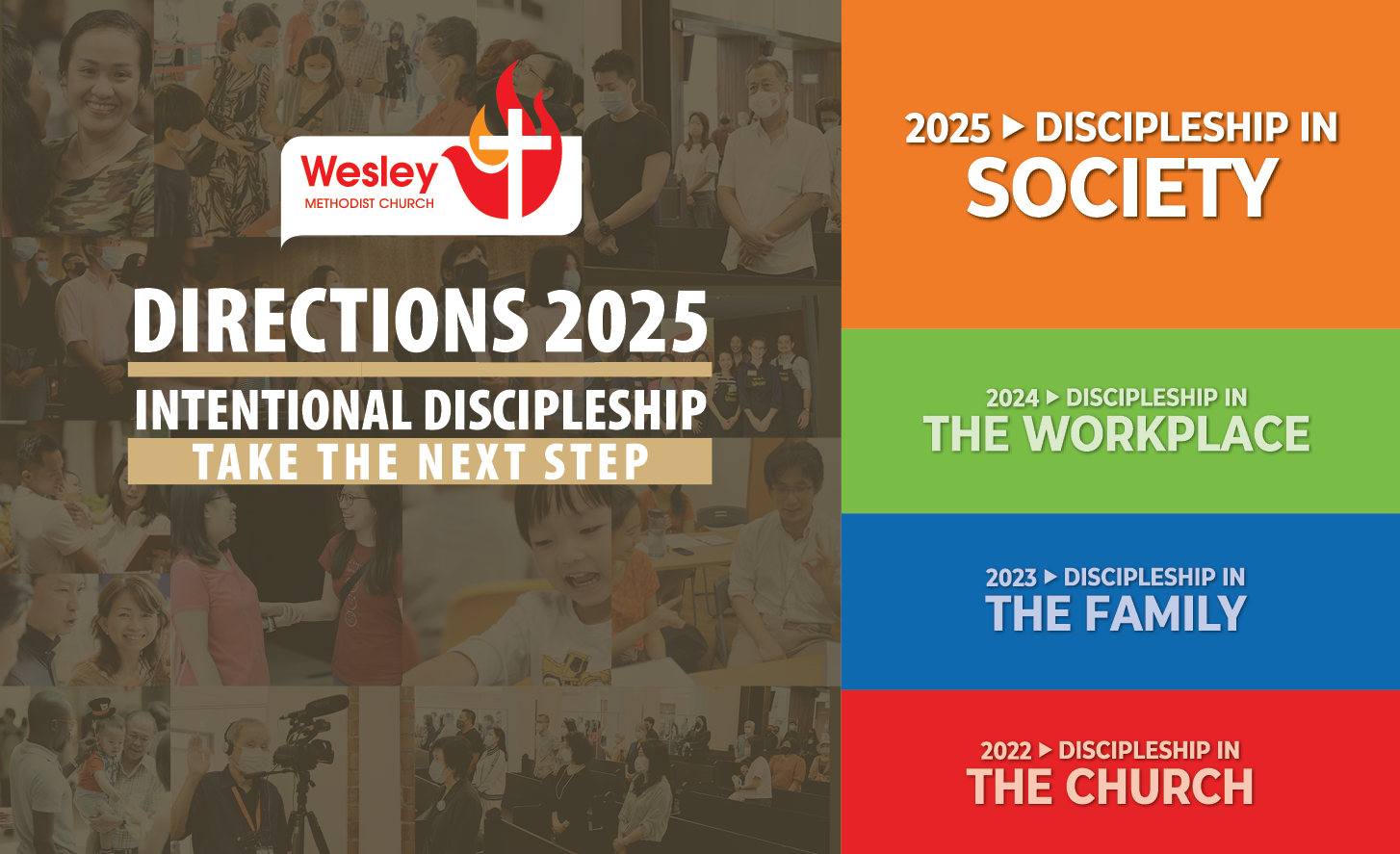1 Corinthians 9:22-23 (NIV)
To the weak I became weak, to win the weak. I have become all things to all people so that by all possible means I might save some. I do all this for the sake of the gospel, that I may share in its blessings.
The apostle Paul did all he could to close the gap, to adapt to different cultures and customs so that he could be a bridge for God and share and proclaim the good news to anyone that he met. This does not only refer to a principle used in cross-cultural missions, but to one that might be applied here in Singapore – that is, we can become a bridge for God and adapt to the communities we are placed in.
Paul offers us some insights in 1 Corinthians 9:19-23 on how we can share the gospel wisely and become a bridge for God. But first we need to understand what Paul said, “I have become all things to all people” (v.22). He was not applying “situational ethics” where we become immoral to reach the immoral. However, in the grey areas of life such as eating food sacrificed to idols (1 Cor 8:1-13), Paul was implying that he became more sensitive to the pre-believers so that he would not hinder them from receiving the gospel. He contextualised the gospel by changing the way the message was communicated but not changing the core content of the gospel.

So how do we become a bridge for God wherever we are?
1) Embracing Our Dual Citizenship
First, we need to embrace our ‘dual-citizenship’. The day we receive Jesus Christ into our lives, we become a child of God who holds dual citizenship. On one hand, we have our earthly citizenship, but on the other hand we also have an eternal citizenship in heaven wherein we have a duty to be a witness for Christ.
One of the constitutional rights I am grateful for in our nation is Article 15 of the Constitution of the Republic of Singapore as it guarantees freedom of religion in Singapore. It states: “Every person has the right to profess and practise his religion and to propagate it.”
So evangelism to anyone and everyone is clearly permitted by our Singapore Constitution. What the laws seek to prevent is “insensitive, aggressive religious proselytization”. This means we can promote our own faith without putting down other faiths.
A few years ago, when I was still a junior pastor in my previous church appointment, I was recalled for a two week in-camp training (ICT). Leading up to this reservist duty, one of my prayers was to ask God to show me His purpose for me during this ICT. I viewed these two weeks as a ‘missions trip’, earnestly praying for God to lead me to divine appointments.
The first opportunity came when a few came up to me curiously to ask about my vocation as a pastor. That gave me an opportunity to share a bit about my faith journey. At the end of my reservist stint, a few of them reached out to me separately as they were keen to visit the church I was pastoring at. I invited them and they actually came by to the service that I was preaching at the following week.
Although pastoring is my full-time vocation, I was also an officer in the Singapore Armed Forces as part of my National Service duties. I abided by the laws and rules of my role, but I also had the right as a citizen of heaven to be a bridge for God to others. When the right opportunity arose, I could share my faith with the people around me.
2) Relational Evangelism
Second, our journey as a bridge for God begins with empathy when we immerse ourselves in the experiences and perspectives of those around us, understanding their joys, sorrows, and struggles. By doing so, we pave the way for authentic connections, transcending barriers of culture, language, and tradition as we value their uniqueness while sharing the unchanging truth of God’s love through our lives. This is what some call “relational evangelism” or “friendship evangelism”.
Sharing the gospel can take place anytime, over a meal or over a cup of coffee. Or in a casual conversation with your friends, classmates in school or colleagues at the workplace. We share with friends what Christ has done in our lives – for example, something good that has happened to us.
This requires a posture of learning, striving to understand different perspectives and viewpoints as we adapt to where they are at, without compromising the core message of the gospel when we share our lives with them.
Conclusion
So, whether we are a student, employee, employer, home maker, retiree, etc., let us embrace our calling with joy and purpose, knowing that in our dual citizenship as earthly citizens and children of God, we are called to become a bridge for God to others. In humility, we invite others to join us on the journey of faith, knowing that we are all fellow travellers in need of God’s grace as we participate in the redemptive work of His kingdom on this side of heaven.

Photos: Pixabay.com
Read also: Spiritual Practices at the Workplace







